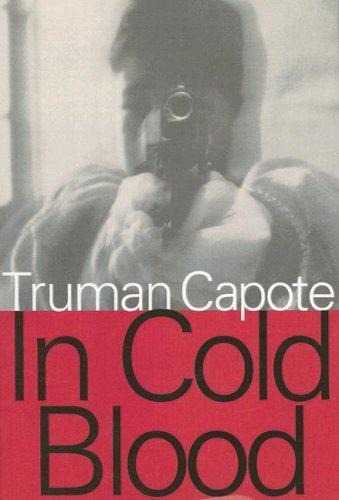
In Cold Blood
Truman Capote
TABLE OF CONTENTS
I.The Last To See Them Alive
II PERSONS UNKNOWN
I.
The Last To See Them Alive
The village of Holcomb stands on the high wheat plains of western
Kansas, a lonesome area that other Kansans call "out there." Some seventy
miles east of the Colorado border, the countryside, with its hard blue skies
and desert-clear air, has an atmosphere that is rather more Far West than
Middle West. The local accent is barbed with a prairie twang, a ranch-hand
nasalness, and the men, many of them, wear narrow frontier trousers,
Stetsons, and high-heeled boots with pointed toes. The land is flat, and the
views are awesomely extensive; horses, herds of cattle, a white cluster of
grain elevators rising as gracefully as Greek temples are visible long before
a traveler reaches them. Holcomb, too, can be seen from great distances.
Not that there's much to see - simply an aimless congregation of buildings
divided in the center by the main-line tracks of the Santa Fe Rail-road, a
haphazard hamlet bounded on the south by a brown stretch of the Arkansas
(pronounced "Ar-kan-sas") River, on the north by a highway, Route 50, and
on the east and west by prairie lands and wheat fields. After rain, or when
snowfalls thaw, the streets, unnamed, unshaded, unpaved, turn from the
thickest dust into the direst mud. At one end of the town stands a stark old
stucco structure, the roof of which supports an electric sign - dance - but the
dancing has ceased and the advertisement has been dark for several years.
Nearby is another building with an irrelevant sign, this one in flaking gold
on a dirty window - Holcomb bank. The bank closed in 1933, and its former
counting rooms have been converted into apartments. It is one of the town's
two "apartment houses," the second being a ramshackle mansion known,
because a good part of the local school's faculty lives there, as the
Teacherage. But the majority of Holcomb's homes are one-story frame
 Трумен Капоте (Truman Capote)
Трумен Капоте (Truman Capote)